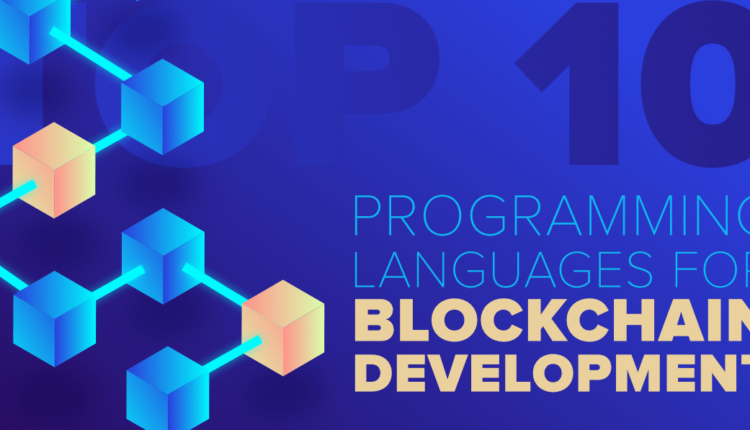©2021 Reporters Post24. All Rights Reserved.
Watch out for these top 10 Programming Languages for building Blockchain applications
Blockchain technology has transformed the way we think about data security and decentralization, making it a more and more well-liked tool for both corporations and developers. When developing a blockchain application, it might be challenging to decide which programming language to employ because there are so many options available. Many businesses are searching for blockchain engineers as technology increasingly permeates previously unexplored industries. It is also becoming more crucial to maintain your position as a leader in the industry as demand for blockchain app developers rises. Technology aficionados need to be familiar with the top languages for blockchain development in order to stay competitive.
In this article, we’ll take a look at the top 10 programming languages for building blockchain applications, including their features and use cases.
-
C++
Blockchain applications are frequently created using C++, a robust, high-performance programming language. It is frequently used to create smart contracts and other blockchain-based systems because it is especially well-suited for developing decentralized applications.
-
Java
The creation of block chain applications frequently uses the well-liked programming language Java. It is a fantastic option for developers who are new to block chain technology because of its simplicity and usability.
-
JavaScript
Another well-liked programming language that is widely used in the creation of blockchain applications is JavaScript. It has a reputation for being adaptable and can be used to build a variety of blockchain-based systems, including decentralised applications and smart contracts.
-
Solidity
A programming language created specifically for the Ethereum blockchain is called Solidity. It is a popular choice for developers working on Ethereum-based projects and is used to create smart contracts.
-
Go
The programming language Go is renowned for its quickness and effectiveness. It is frequently used when creating blockchain applications, especially when scalability and high performance are needed.
-
Python
Python is a popular programming language that is renowned for being straightforward and user-friendly. It is frequently employed in the creation of blockchain applications, especially those requiring sophisticated machine learning and data analysis. In addition to dominating the fields of network servers, IoT apps, and apps for mobile devices, Python has also shown to be a valuable tool for block chain programming.
-
C#
The creation of block chain applications frequently uses the robust programming language C#. It is a great option for developers looking to create high-performance blockchain-based systems because of its reputation for speed and efficiency.
-
Ruby
Ruby is a programming language renowned for being straightforward and user-friendly. It is frequently employed in the creation of block chain applications, especially those that demand a high level of scalability and flexibility.
-
Rust
The programming language Rust is renowned for its security and safety. It is frequently employed in the creation of block chain applications, especially when high levels of security and defence against malicious attacks are necessary.
-
Kotlin
Programming language Kotlin is renowned for being straightforward and user-friendly. It is frequently employed in the creation of blockchain applications, especially those that demand a high level of scalability and flexibility.
Conclusion: The programming language that is used will depend on the project’s specific needs as there are many that can be used to create blockchain applications. Some of the most used programming languages for creating blockchain applications include C++, Java, JavaScript, Solidity, Go, Python, C#, Ruby, Rust, and Kotlin. It’s critical to select the language that most closely matches the requirements of your project because each of these has distinctive features and use cases.
Disclaimer: The information provided in this article is solely the author’s opinion and not investment advice – it is provided for educational purposes only. By using this, you agree that the information does not constitute any investment or financial instructions. Do conduct your own research and reach out to financial advisors before making any investment decisions.


